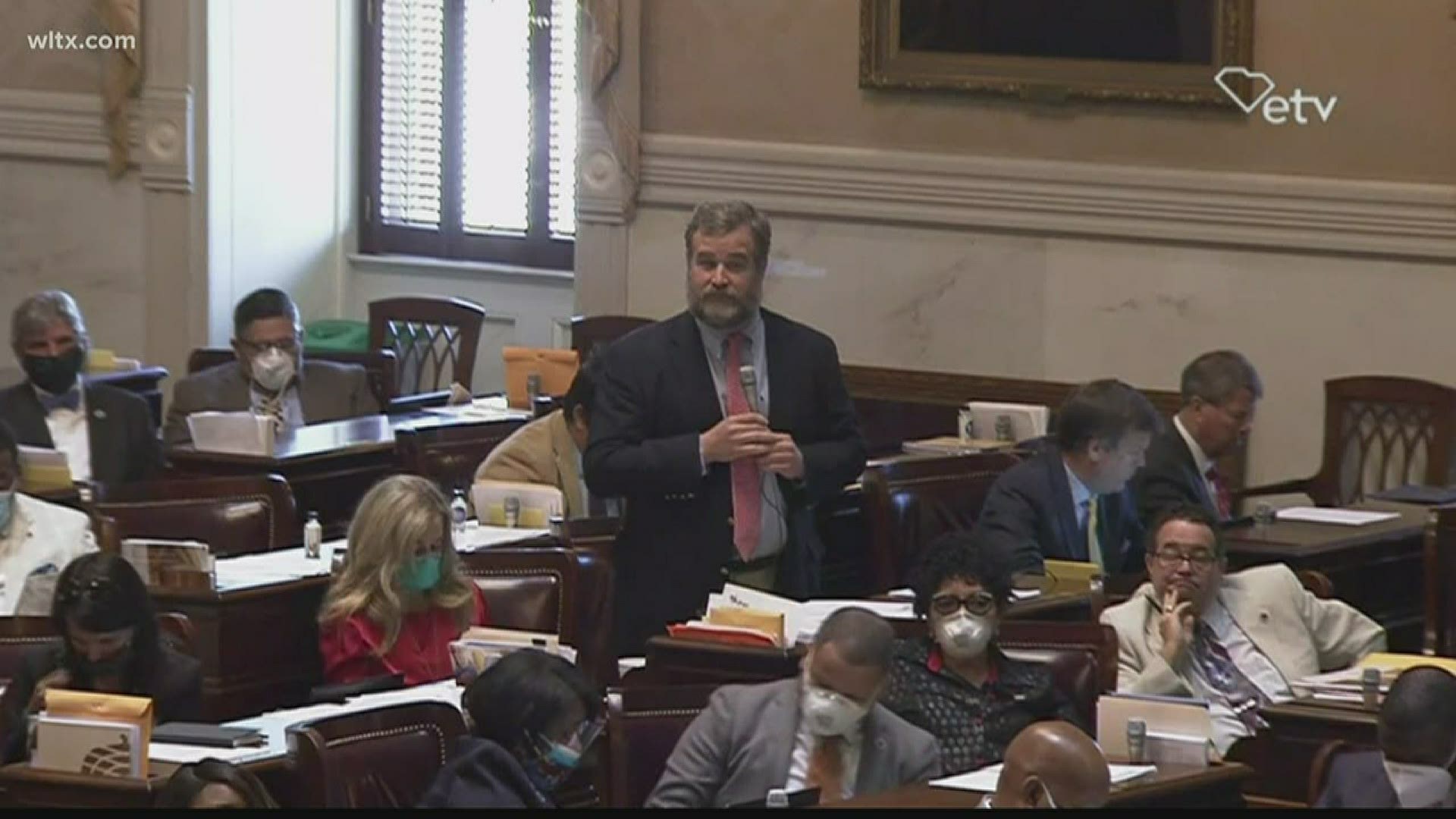COLUMBIA, S.C. — Lawmakers returned to Columbia on Tuesday after about a month of prolonged recess.
The General Assembly acted to prevent a government shutdown later this summer and expand the ability to vote absentee during the pandemic.
Lawmakers had last attempted a continuing resolution for the budget in early April, which quickly was mired in a Santee Cooper debate in the Senate.
Tuesday’s attempt was a successful second attempt.
With many of them in masks, gloves, or both, the state’s Senate and House politicians spent hours coming to terms on several bills guiding the state through the coronavirus pandemic.
First, lawmakers agreed on a budget continuing resolution to keep the state funded after July 1st in the new fiscal year.
Ways and Means Chairman and Representative Murrell Smith, (R) Sumter, said it allows the state to hire help to make sure federal money goes to the right place.
“This is not like a FEMA account money where you spend it and then they reimburse you. They've advanced the money and you spend it in the way they tell you to spend it. And if you don't, then you have to repay it back. So, it's very important we get this right. So we authorized the Department of Administration to procure grant administrator if they were wanting to do that,” Smith told fellow House members.
The continuing resolution also creates a $155 million COVID-19 Response Reserve account, which includes $15 million for the health and safety of poll workers and county employees in this year’s elections.
But the money did not stop there. The House’s version of the continuing resolution, which was approved in both chambers, set aside $25 million for statewide testing through MUSC and created a $20 million disaster relief fund.
The disaster relief fund can be used for summer hurricanes or other declared disasters.
In a decision late into the session on Tuesday, the House and Senate also agreed to expand absentee voting for the June primaries and subsequent runoffs.
“A qualified elector must be permitted to vote by absentee ballot in an election if the qualified elector's place of residence or polling place is located in an area subject to a state of emergency as declared by the Governor and there are fewer than 46 days remaining until the election,” Senator Brad Hutto, (D) Orangeburg, told the Senate chamber.
The bill, which also allows county election offices to begin county absentee ballots the calendar day preceding election day, only applies to the June primaries and any runoffs.
It sunsets before the general election in November, which lawmakers said gives them more time to find a permanent solution for the presidential election, if it's needed.
The State Election Commission and some outspoken lawmakers have been urging wider access to absentee voting for months.
Lastly, the General Assembly agreed on how and when to return to the State House after regular session would've ended this month.
House Speaker Jay Lucas said it was necessary to have options.
“I think we all know and we all understand that the business of this state has been interrupted far too frequently this year. So, fortunately we're going, or unfortunately however you see it, we're going to need maximum flexibility to come back and do the business of the people of South Carolina until November 8th, when our terms expire,” Lucas said in a rare speech from the House floor to fellow members.
The resolution guarantees lawmakers will be back September 15 through September 24, if they need the entire period, to pass a new budget.
Lucas said they hope to have a better idea of COVID-19’s impact on revenue and state funds by September 15th to write a new budget. The House had already approved a budget before the session ground to a halt due to the virus.
In the meantime, the Sine Die resolution allows the General Assembly to reconvene for anything related to COVID-19 or bills already approved in at least the House or Senate for votes in the other chamber.
Tuesday's approved bills will head to the Governor for his signature or veto.
During Monday’s press conference, Governor Henry McMaster had urged the General Assembly to approve the continuing resolution.

